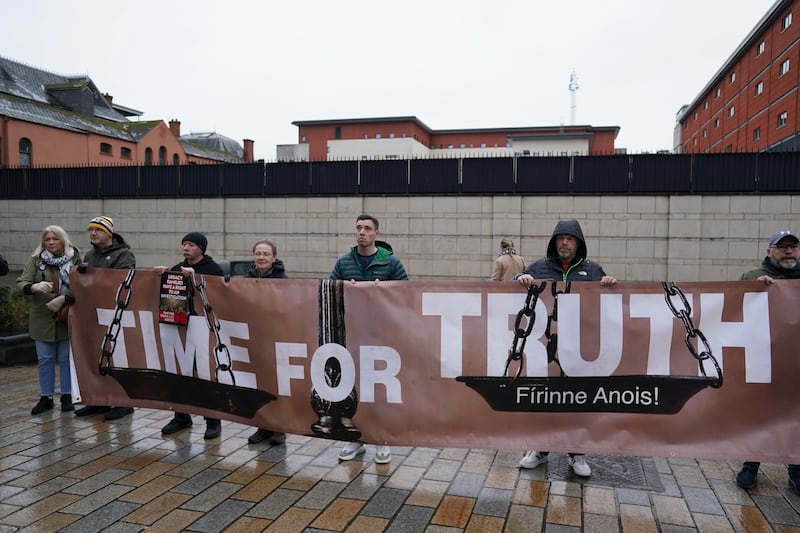More than 330 Troubles related Police Ombudsman cases will not be investigated by the watchdog as the British government Legacy Act deadline looms.
Details emerged as the contentious Legacy Act, which ends existing avenues for investigating the Troubles, comes into force on Wednesday.
From that point, civil cases and inquests that are not at their findings will be halted, with responsibility for oversight transferred to the Independent Commission for Reconciliation and Information Recovery (ICRIR).
Many victims and relatives of those who died during the Troubles are strongly opposed to the ICRIR and believe it is designed to protect state participants from accountability.
The Police Ombudsman has now confirmed that it has 442 complains and referrals on historical matters.
In total 281 are what’s described as “pended cases”, where investigations had not started while another 54 cases, where investigations had begun, will not now be completed – a total of 335.
The Ombudsman said that another 95 cases where investigations have been completed will be brought to a conclusion in the next year, while a further 12 cases that fall within the Troubles timeframe but are not conflict related will remain part of the ombudsman’s caseload.
Ms Anderson said new transitional arrangements under the Northern Ireland Troubles (Legacy and Reconciliation) Act 2023 “go further than originally anticipated and mean that I will be able to communicate my findings in a greater number of cases than first envisaged”.
“I am acutely aware that as my remit for historical investigations closes, regrettably my ability to provide answers to other families and victims also ends,” she said.
In recent weeks around 240 letters have been sent by the Police Ombudsman’s office to people who have lodged complaints.
In some correspondence Ms Anderson said limited resources, periods of under funding and “wider societal issues in agreeing an approach to legacy” have “impeded” he ability to carry out and complete investigations.
Ms Anderson said her team has been working with the ICRIR for several months and has provided details of the body’s website.
Paul Butler, of Relatives for Justice (RFJ), voiced concern.
“Some of the complaints that RFJ submitted to the Police Ombudsman on behalf of relatives have been with the Ombudsman for over ten years,” he said.
" In some cases, relatives have since died while others are very elderly and suffer from ill health. It is unacceptable that victims have had to wait for over a decade to then to be told that their complaint will no longer be investigated.”
Kevin Winters, of KRW Law, who represents many victims, said the letters “deliver the cold harsh reality of the new post - Legacy Act era”.
“The content of the letter betrays a state sleight of hand,” he said.
“They starved PONI (Police Ombudsman) of resources for years and then used that as a contrived basis to say current mechanisms aren’t working.”








